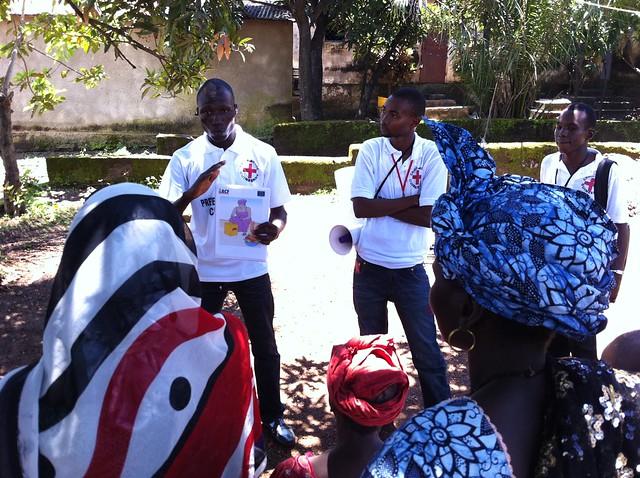As expected, the Democratic Republic of the Congo (DRC) health ministry marked an Ebola outbreak milestone of passing 2,000 cases late yesterday, and groups working in the region called for pushing the reset button on the response.
In its daily update yesterday, the DRC said the outbreak passed the 2,000-case bar on Jun 2. Officials said that, although the landmark is concerning, the health ministry sees some positive signs, including a slight improvement in the security situation, though the situation remains volatile and unpredictable.
The ministry added that most incidents related to community resistance have been resolved by community leaders, sensitizers, and psychosocial experts.
Another positive sign is that the outbreak is still geographically contained, though the risk remains high because of significant population movements. Also, nine earlier-affected health zones have gone 21 days without reporting any new cases.
DRC officials said the three main challenges are stronger identification and follow-up of all contacts of confirmed cases and infection prevention and control in community health facilities, where 25% to 30% of Ebola infections occur. Also, the ministry said community death rates remain high, and 28% to 43% of Ebola deaths are occurring outside Ebola treatment or transit centers.
'Drastic change is required'
In a statement yesterday, the International Rescue Committee (IRC) pointed out that, since the outbreak total hit 1,000 in late March, daily cases have more than tripled. The group is working in Katwa, Butembo, and Beni to support health ministry staff, is helping the provincial capital city Goma prepare for Ebola, and is working with women and children to help them cope with the outbreak's impact.
With persistent mistrust and insecurity hampering daily response activities, the current total is probably an undercount, the IRC warned.
Tariq Riebl, IRC emergency response director, said, "The fact that we have hit 2,000 persons infected with Ebola so quickly demonstrates that this outbreak is spreading faster when it should be slowing. We are now seeing eight to 20 cases recorded each day," adding that just a few months ago, officials were recording 3 to 5 new cases each day.
"To see such a spike in cases at this stage in the outbreak means a drastic change is required. This response requires a total and complete reset," he said. He noted that a recently announced scale-up by the Inter-Agency Standing Committee, a group that coordinates humanitarian assistance between groups under the United Nations (UN) umbrella and nongovernmental organizations, is a step in the right direction.
In a statement today, the International Federation of Red Cross and Red Crescent Societies (IFRC) also called for a response restart. Nicole Fassina, the IFRC's Ebola coordinator, said the response has undoubtedly saved lives and prevented the spread of the disease, but now a reset is needed to put communities at the center of all efforts.
The IFRC also raised concerns about the use of more intensive security or military support, despite ongoing community resistance and threats and attacks from armed groups. "Increasing armed protection for Ebola responders may aggravate the tensions that already exist between communities and responders," it said.
And Oxfam today, as it weighed in on the 2,000-case landmark, said it welcomed the UN-led scale-up in humanitarian aid, which it said is a crucial part of building trust with communities, after months of mistrust. Oxfam has been working in the outbreak region to support the public health response at the community level, to provide safe and clean water, and to improve health center infrastructure.
Corrine N'Daw, Oxfam's country director, said in a statement, "Our teams are still meeting people on a daily basis who don't believe Ebola is real. While we are working to challenge that, many cases are going un-noticed because people with symptoms have been avoiding treatment. This lack of trust makes it impossible to break the chain of transmission."
Deaths rise to 1,346
Meanwhile, in its daily update yesterday, the DRC reported 14 new cases, lifting the official total to 2,008. The latest infections are in five different hot spots: Mabalako, Butembo, Katwa, Mandima, and Kalunguta. Health officials are still following up on 281 suspected cases.
Seven more people died from Ebola, boosting the fatality count to 1,346. Six people died in community settings, an occurrence that raises the risk of transmission, and one person died at Butembo's Ebola treatment center.
See also:
Jun 3 DRC update
Jun 3 IRC statement
Jun 4 IFRC statement
Jun 4 Oxfam statement



















